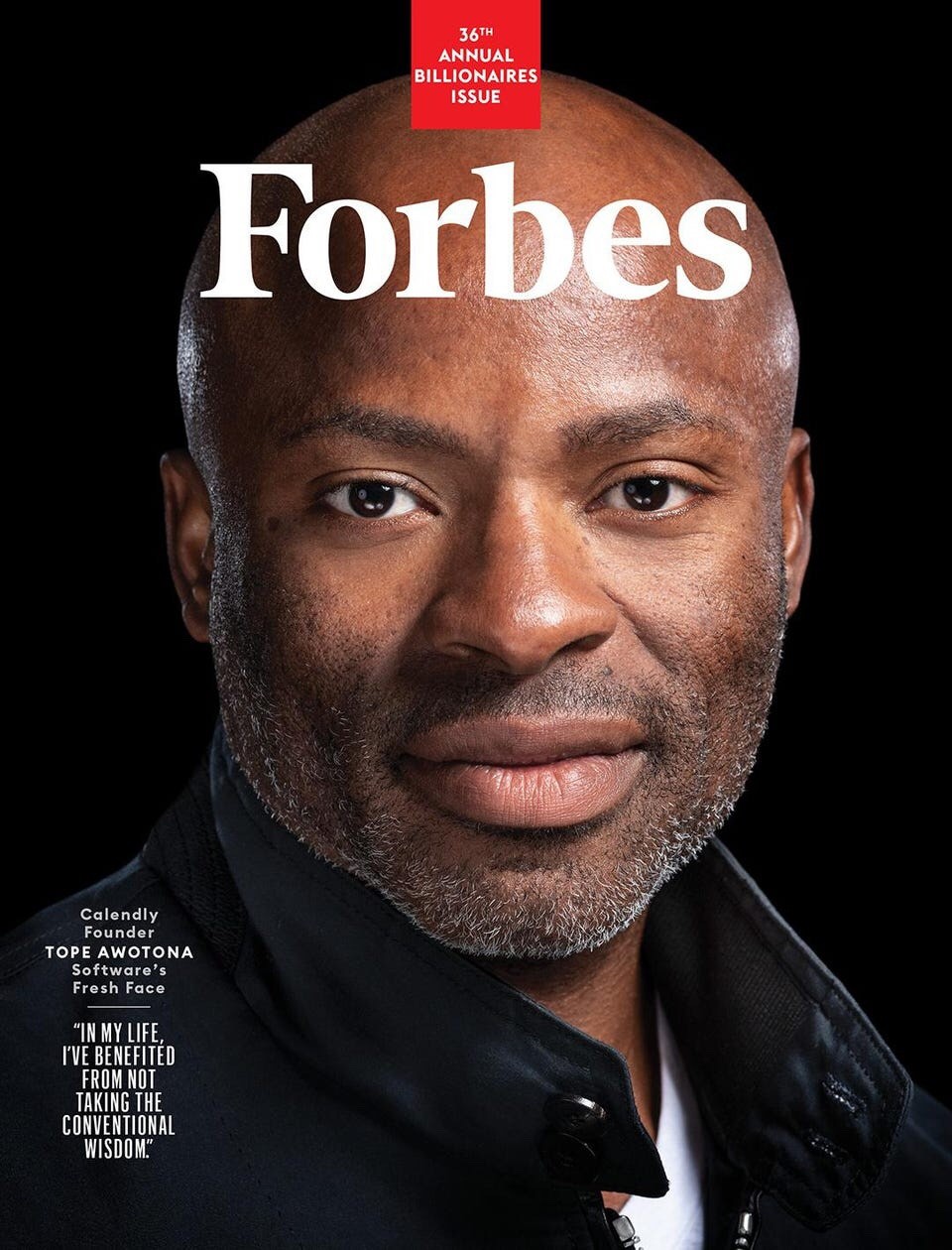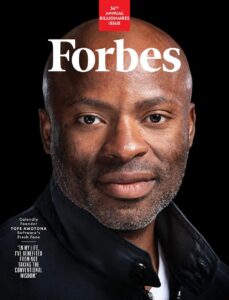

Nigeria-Born Tope Awotona Poured His Life Savings Into Calendly. Now He’s One Of America’s Wealthiest Immigrants
Tope Awotona, the 40-year-old founder and chief executive of Calendly, leans back in his chair and lets loose a loud guffaw.
“You call it on message, I call it the truth,” he says, slapping his hands on the table. The truth, as Awotona has it, is that everyone needs Calendly, his scheduling software, to lead better, more productive, happier work lives.
Nine years ago, Awotona started Calendly, pouring his life savings of $200,000 into it and later quitting his job selling software for EMC. Today, the company has 10 million users and counts Lyft, Ancestry.com, Indiana University and La-Z-Boy among its customers. Revenue last year passed $100 million, double what it booked the previous year. It could double again this year.
The company, which was founded in Atlanta but no longer has any physical offices, has been profitable since 2016. Last year it raised $350 million in funding from OpenView Venture Partners and Iconiq Capital at a price that values the business at $3 billion. That means Awotona’s majority stake is worth at least $1.4 billion, after the 10% discount that Forbes applies to shares of all private companies. Awotona is one of just two Black tech billionaires in the United States, along with David Steward, the 70-year-old founder of Missouri-based IT provider World Wide Technology. “Tope could be the most successful African-American tech entrepreneur of his generation,” says David Cummings, founder of Atlanta Ventures, which led a $550,000 seed investment in Calendly seven years ago.
Calendly doesn’t have the scheduling business to itself. Square, Microsoft and Zurich-based Doodle offer competing products. But Calendly has gained traction with its sleek, consumer-friendly design and its freemium model that lets it gain paying customers with no marketing.
“In my life, I’ve benefited from not taking the conventional wisdom,” Awotona says. “It’s benefited me personally, and I think it has benefited the business.”
Awotona was born in Lagos, Nigeria, into a middle-class family. His father was a microbiologist and entrepreneur; his mother worked at the central bank. Lagos, a city of 15 million, is economically vibrant but dangerous. When Awotona was 12 he witnessed his father get shot and killed in a carjacking. “There was a part of me, from a very early age, that wanted to redeem him,” he once said.
In 1996, when he was 15, he moved with his family to Atlanta. He studied computer science at the University of Georgia, then switched to business and management information. “I loved coding, but it was too monotonous,” he says. “I’m probably too extroverted to be a coder.”

Leave a Reply